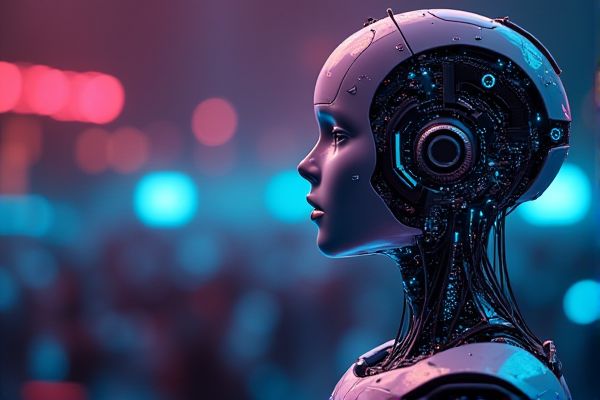
AI technology plays a significant role in music production, enabling artists to create unique sounds and streamline workflows. Machine learning algorithms assist in analyzing listener preferences, helping record labels and musicians tailor their music to specific audiences. AI can also generate music compositions, offering new avenues for creativity and innovation. In live performances, AI-driven tools enhance audience engagement through interactive experiences and real-time data analysis.
AI usage in music industry
AI-driven music composition
AI-driven music composition can streamline the creative process, offering musicians new tools for inspiration. Platforms like AIVA allow artists to generate original compositions tailored to specific genres. This technology presents an opportunity for faster production and accessibility to unique sounds. Additionally, musicians can leverage AI to analyze trends, potentially enhancing their market appeal and audience engagement.
Personalized music recommendations
AI technology can enhance personalized music recommendations by analyzing user preferences and listening habits. Platforms like Spotify utilize algorithms to curate playlists based on individual tastes, increasing user engagement. This tailored approach can lead to higher customer satisfaction and loyalty within the competitive music industry. By leveraging AI, music streaming services can also help emerging artists reach their target audience more effectively.
Automated mastering and production tools
AI usage in the music industry includes automated mastering and production tools, which can enhance the efficiency of music creation. These tools, like LANDR, provide musicians with affordable options for high-quality sound mastering. By streamlining the production process, artists have a better chance of focusing on creativity instead of technical aspects. This shift can potentially lead to increased output and innovation within the industry.
Virtual and augmented reality concert experiences
AI technology in the music industry offers the possibility of enhanced music creation processes, enabling artists to experiment with new sounds and styles. Virtual and augmented reality concert experiences provide an opportunity to reach a global audience, breaking geographical barriers and allowing fans to attend events from anywhere in the world. For example, platforms like Oculus and their VR concerts could reshape how live performances are experienced. The integration of AI with these immersive technologies can create personalized experiences, potentially increasing fan engagement and satisfaction.
AI-enhanced sound design
AI-enhanced sound design has the potential to revolutionize the music industry by streamlining production processes. Software like AIVA can help composers create original scores, providing a significant advantage in music creation. With AI tools, producers can analyze listener preferences and trends, potentially increasing the chances of commercial success. This technology may enable artists to experiment with new sounds, opening up unique avenues for creativity and innovation.
Music rights management with blockchain technology
AI is increasingly utilized in the music industry to streamline processes such as music composition and production. Blockchain technology presents a promising solution for music rights management by ensuring transparent tracking of royalties and ownership. Platforms like Opus utilize this technology to protect artists' rights while facilitating fair compensation. The combination of AI and blockchain could enhance efficiency, providing musicians with greater control over their intellectual property.
Sentiment analysis in music marketing
AI can enhance the music industry by analyzing audience sentiment through data collected from streaming platforms and social media. By leveraging tools like sentiment analysis, music marketers can tailor promotions and campaigns to better align with listener preferences. This targeted approach increases the chances of successful engagement and sales for specific songs or albums. For example, a label could use sentiment data to decide which tracks from an artist's latest album to push for radio play and advertising.
AI-powered vocal synthesis
AI-powered vocal synthesis offers musicians innovative tools to create unique sounds and enhance their compositions. With platforms like OpenAI's Jukedeck, artists can easily generate vocal tracks, saving time and resources. This technology provides opportunities for collaboration between human creativity and machine efficiency. Musicians may find that integrating AI in their workflow can lead to new artistic possibilities and broaden their audience reach.
Real-time audio analysis and feedback
Real-time audio analysis enables musicians to receive immediate feedback on their performances, which can enhance the creative process. By leveraging AI algorithms, artists can identify areas for improvement and refine their sound with precision. For example, a sound engineer at a recording studio might utilize these AI tools to optimize vocal tracks during a session. This technology enhances the artist's capability to produce polished music more efficiently, increasing the chances of success in a competitive market.
Enhanced fan engagement with AI-generated content
AI-generated content in the music industry can significantly enhance fan engagement by creating personalized experiences. For example, streaming services like Spotify utilize algorithms to recommend songs tailored to individual listener preferences. This personalized approach can increase listener retention and satisfaction. The potential for interactive AI-driven experiences, such as virtual concerts or customized playlists, further expands opportunities for artists and fans to connect.
 techknowy.com
techknowy.com